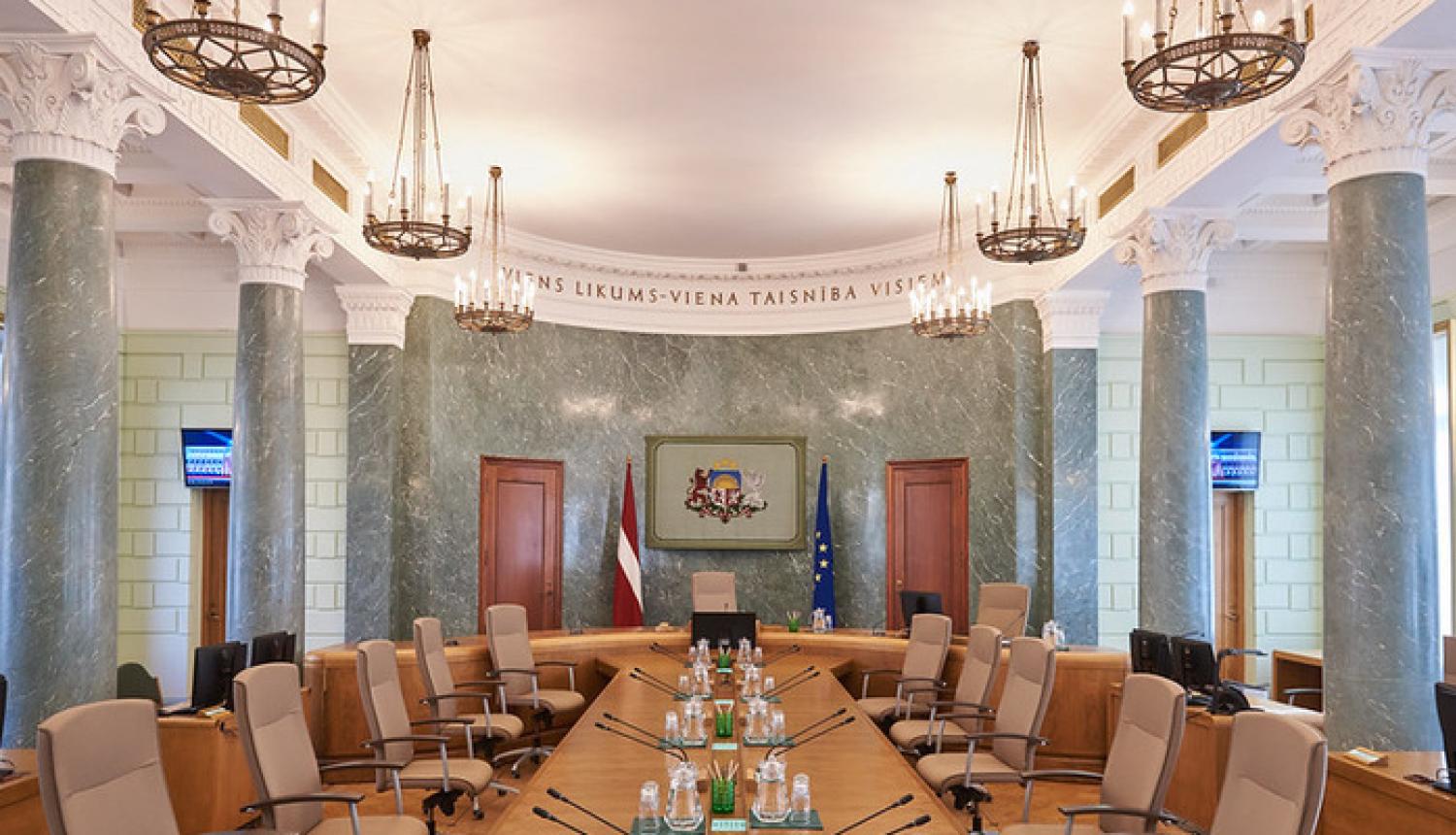On Thursday, 28 May, the Cabinet of Ministers approved several bills that set out the main principles for the operation of state institutions after the end of the state of emergency on 9 June, while ensuring the possibility to retain the necessary restrictions and support mechanisms for citizens and businesses during the Covid-19 pandemic.
Prime Minister Krišjānis Kariņš: “The government's strategy for limiting the spread of Covid-19 and the responsible public involvement have helped to purposefully control the spread of the virus in Latvia. Unfortunately, there is still no vaccine or treatment available in the world that could stop the virus from spreading. Therefore, physical distancing, restrictions on gatherings, and compliance with epidemiological conditions will continue to be a part of maintaining safety in our daily lives, even after the end of the state of emergency. At the same time, the government will continue to provide various types of support to businesses and citizens for as long as it will be needed.”
The bills approved by the government will make it possible, in the future, to ensure necessary order in the country without declaring a state of emergency, as the measures contained in the law “On Emergency Situation and State of Exception” can only be applied in cases where the risks to society cannot be effectively eliminated by applying the existing legal framework. Based on the current epidemiological situation, the current restrictions in force due to the spread of Covid-19 will not be lifted until the end of the state of emergency, and some are expected to also stay in force after 9 June.
The bills approved by the government have yet to be considered by the Saeima, and their planned entry into force is 9 June.
The aim of the “Covid-19 Infection Control Law” prepared by the Ministry of Justice is to restore the general legal order after the expiration of the state of emergency, providing a set of measures that will ensure a level of rights and obligations to individuals that will be commensurate with the interests of public safety and health, so that state and local government institutions can work effectively during the pandemic.
In turn, the Ministry of Finance has drafted a law defining the spread of Covid-19 as a situation dangerous to the State and regarding the prevention and management of its consequences; the law aims to establish a legal framework for after the end of the state of emergency and until special measures and/or support mechanisms are needed for preventing the COVID-19 threat and the consequences thereof.
The Ministry of Health has supplemented the Epidemiological Safety Law in order to provide a set of anti-epidemic measures that determine the powers and measures to be taken by individuals and institutions in accordance with this modern situation, measures that were not precisely defined before the declaration of the state of emergency. For example, the amendments clarify the competences of the Centre for Disease Prevention and Control, the Health Inspectorate, local governments, and the police, as well as the need for self-isolation for contact persons and other conditions.



